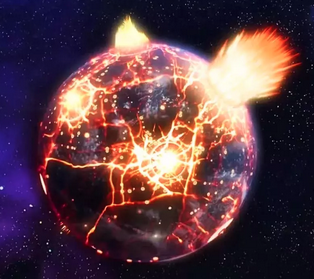- cross-posted to:
- collapse@lemmy.ml
- collapse@lemmy.ml
- collapse@chat.maiion.com
- cross-posted to:
- collapse@lemmy.ml
- collapse@lemmy.ml
- collapse@chat.maiion.com
About the author’s struggle to find someone among his friends to speak to about collapse. He says, "Most of all, I want someone to hug me and say, “I know. I’m scared, too.” Lots of good links in there for further reading.


Any good reading on what social change would look like in order to achieve the ideal society to address climate change?
I first became interested in social and economic theories in high school (early 1970s). The books available to me were mostly pretty old, but I was also very interested in comparing what was said in those writings with what I could happening around me.
I read Karl Marx, John Maynard Keynes, and their detractors. Two things I took away from that reading are that the economy must serve the mass population, not the other way around, and that, at least within a capitalist system, the population does not contain businesses, but business people and those people are just a small fraction of the population. My conclusion was (and remains) that governments must regulate business to prevent them from gaining power and must structure taxes and public services in ways that ensure that society as a whole benefits from productivity gains, not just business people. I recently came across this article that is an excellent starting point for cherry picking the good stuff from both theoretical frameworks.
I then read from the Chicago School of economics and the people in various fields who advocated and argued against it. From that I learned that there are those who would elevate business from being a kind of useful servant of the economy and therefore of society to the objective of the economy and therefore of society. (Something that I’ve recently heard referred to as “neo-feudalism”.)
I read who I’ll call the “social justice warriors”. So civil rights leaders, feminists, prison and justice system reformers, unionists, education reformers, etc. The biggest thing I took away from that reading was that certain kinds of discrimination (say, Affirmative Action) can be temporarily justified as methods of reparation and correction of historical wrongs and the ongoing generational fallout, but that the primary goal should be the creation of a society in which privilege is not an accident of birth, health, or circumstance.
I read quite widely on ecology, but quite heavily on the difference between renewable and nonrenewable resources. It’s less obvious than most people think. There are obvious nonrenewable resources like fossil fuels, minerals, and metals, but a forest is not renewable if not harvested in sustainable ways. Going further, that forest is part of an ecological system and ecological systems are not renewable if overly disrupted, so sustainable harvest is not just about planting replacement trees, but preserving ecologies, and not just for display and recreation, but for regeneration. The places we dump our waste are also resources and their renewability is based on the nature and volume of waste.
Some more recent reading includes things like Shock Doctrine, which examines one aspect of how disasters can be leveraged by those with the resources to survive a disaster to further increase their access to resources at the expense of those without the resources to survive the disaster on their own.
Some of my favourite reading comes from those who argue against the doomers throughout history. For example, it’s trivial to find someone who says Malthus was wrong, but very difficult to find anyone who actually argues against the foundational thesis that populations, including humans, grow to the limits of available resources. That is, breaking new ground, literally or technologically, can never be more than a temporary solution. Likewise with respect to everything from social service programs and the failure of critics to properly account in detail for the actual sources of profits associated with privatization.
For defining and constructing societies that serve people, I think the best writers are found among the science communicators, especially those who focus on how to communicate science. They describe the methods by which knowledge is gained, validated and updated, and disseminated.
So that was pretty long on text and pretty short on specific recommendations. Some of that is bad memory, but mostly I don’t actually find many writers addressing what society should look like, only that this one ain’t it. Even thinner on the ground are those who address foundational solutions rather than specific changes in one element.